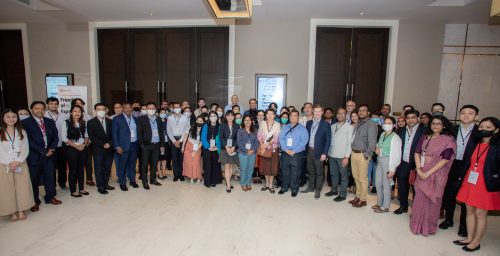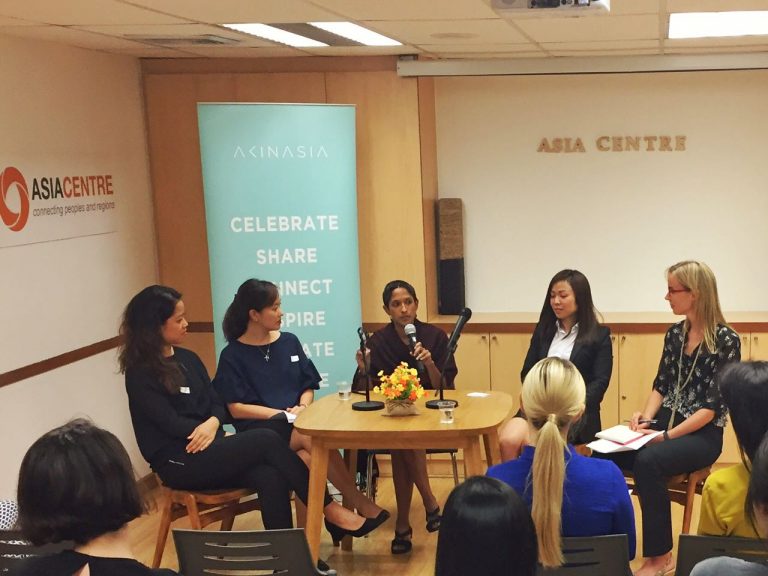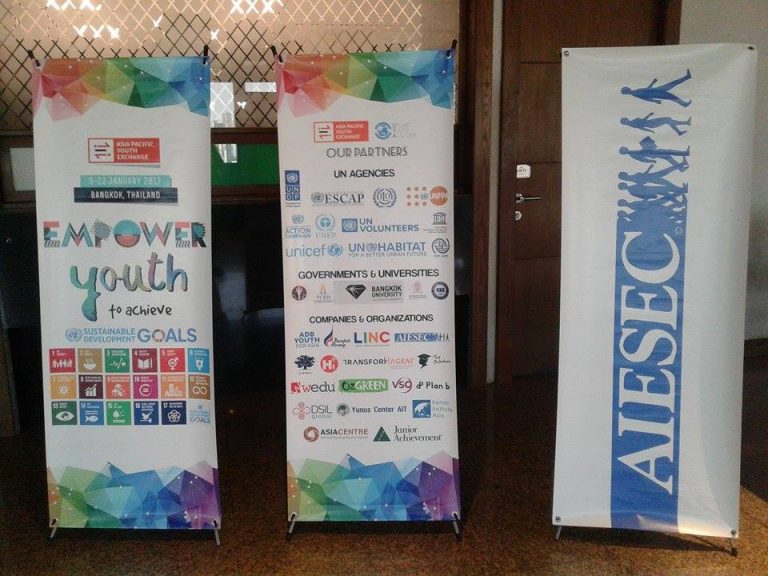Artificial intelligence (AI) has the potential to transform governance in Southeast Asia, but the uneven distribution of its benefits risks exacerbating inequality, disrupting labour markets and placing additional stress on the environment. To mitigate these risks, inclusive frameworks are crucial. The frameworks that protect digital labour, balance power between governments and technology companies and ground AI in local values and community-driven solutions.
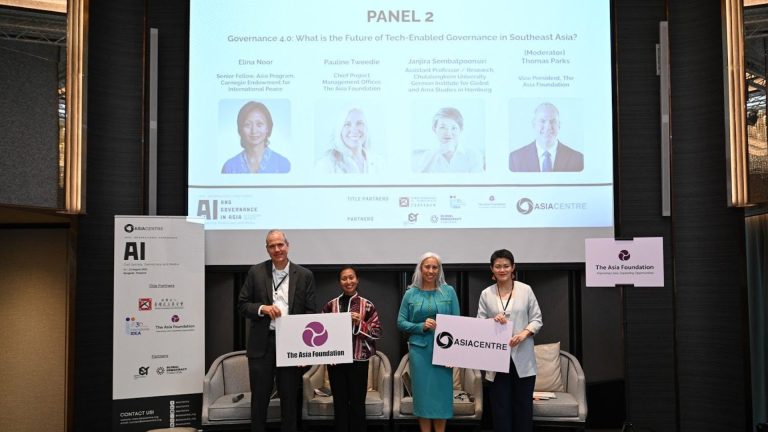
This was the core message delivered in a panel discussion hosted by The Asia Foundation (TAF) during Asia Centre’s 10th Annual International Conference “AI and Governance in Asia: Civil Society, Democracy and Media” in Bangkok from 21 to 22 August 2025.
In his opening remarks on 21 August 2025, Thomas Parks, Vice President of The Asia Foundation, underscored the importance of advancing dialogue on democracy in Asia at a time when many development organisations face funding challenges. He stressed the need for collaborative, cross-institutional approaches to ensure sustainability. While AI offers opportunities to enhance civic participation and strengthen governance, Parks cautioned that it also brings risks, particularly around misinformation. He argued that discussions on equity, rights and public trust remain essential to shaping AI responsibly.
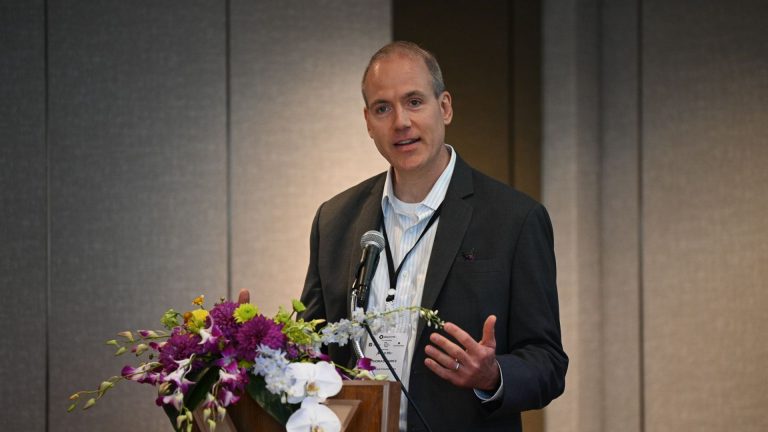
Following his remarks, TAF convened the plenary session titled “Governance 4.0: What is the Future of Tech-Enabled Governance in Southeast Asia?”, Moderated by Thomas Parks, the panel examined how AI could reshape state–citizen interactions, resource distribution and service provision. Parks highlighted both opportunities and blind spots in governance and policy, particularly issues related to equity, public data ownership and technocratic automation. He emphasised that Asian states must harness AI to create governance systems that are adaptive, effective, responsive, accessible and equitable. The panel featured three speakers:
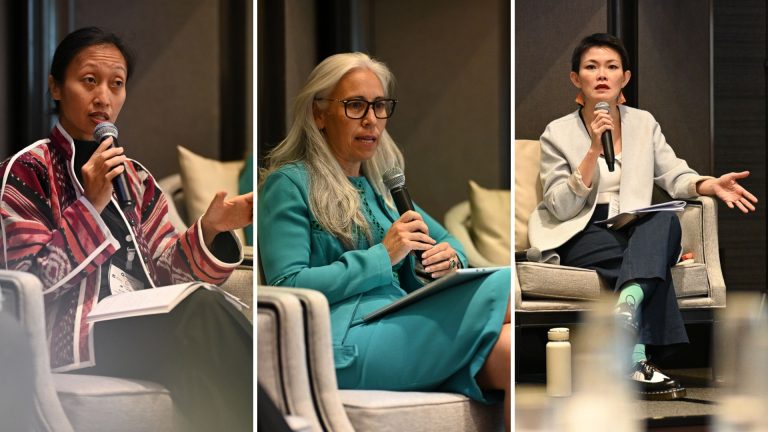
Elina Noor, Senior Fellow with the Asia Programme at the Carnegie Endowment for International Peace, criticised the market concentration of large technology companies. She pointed to exploitative relationships and echoes of colonial extraction. Noor argued that AI development must be inclusive and rooted in local contexts, community needs and traditional values rather than shaped solely by corporate or geopolitical interests.
Pauline Tweedie, Chief Project Management Officer at The Asia Foundation, warned that uneven adoption of AI could deepen inequality by widening the digital divide and disrupting labour markets, particularly for low-skilled workers. She cited the Philippines’ business process outsourcing sector as an example of a sector that is especially vulnerable to automation, raising concerns about migrant labour and brain drain. Tweedie emphasised the need for community-led interventions such as shown in Timor Leste, and local ownership in AI governance, including measures to address environmental concerns and ensure equitable benefits.
Dr. Janjira Sombatpoonsiri, Research Fellow at the German Institute for Global and Area Studies in Hamburg and an assistant professor at Institute of Asian Studies, Chulalongkorn University, Thailand, highlighted the lack of digital labour protections in Southeast Asia’s AI governance frameworks. She linked this gap to broader structural inequalities. Janjira called for renewed collective action – particularly involving youth – to foster inclusive AI governance. She stressed that empowering local ownership and participation is critical to reducing inequality and ensuring that AI supports, rather than undermines, democracy.
During the Q&A session, participants raised concerns about the geopolitical and environmental implications of data centre ownership and digital infrastructure, including risks of concentration, regional control and the impact of tech-enabled surveillance on journalists and civil society. Questions also focused on how governance can safeguard press freedom while addressing these challenges. In response, panellists underscored the importance of sovereignty and taxation in curbing the dominance of major technology companies in Southeast Asia. They called for strong regional cooperation that prioritises environmental and social considerations and promotes community-driven solutions.
Asia Centre’s International Conference is its flagship annual gathering, designed to bring partners together to present outcomes, share expertise, and develop future collaborations. Over the years, it has become a trusted space for open dialogue on democracy and human rights in Asia.
Asia Centre is a civil society research institute in Special Consultative Status with the United Nations Economic and Social Council. It serves as a knowledge partner and undertakes evidence-based research as well as provides capacity-building training for end beneficiaries. If you would like to collaborate with the Centre, please send an expression of interest to contact@asiacentre.org. Follow Asia Centre’s social media channels for updates.

